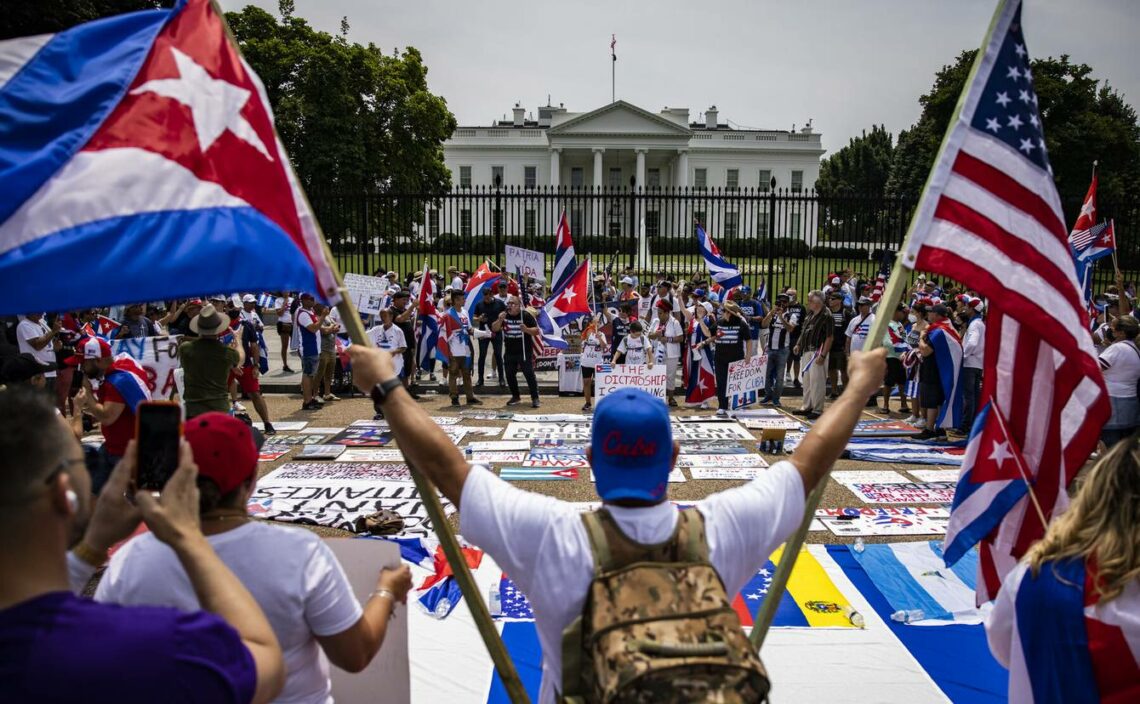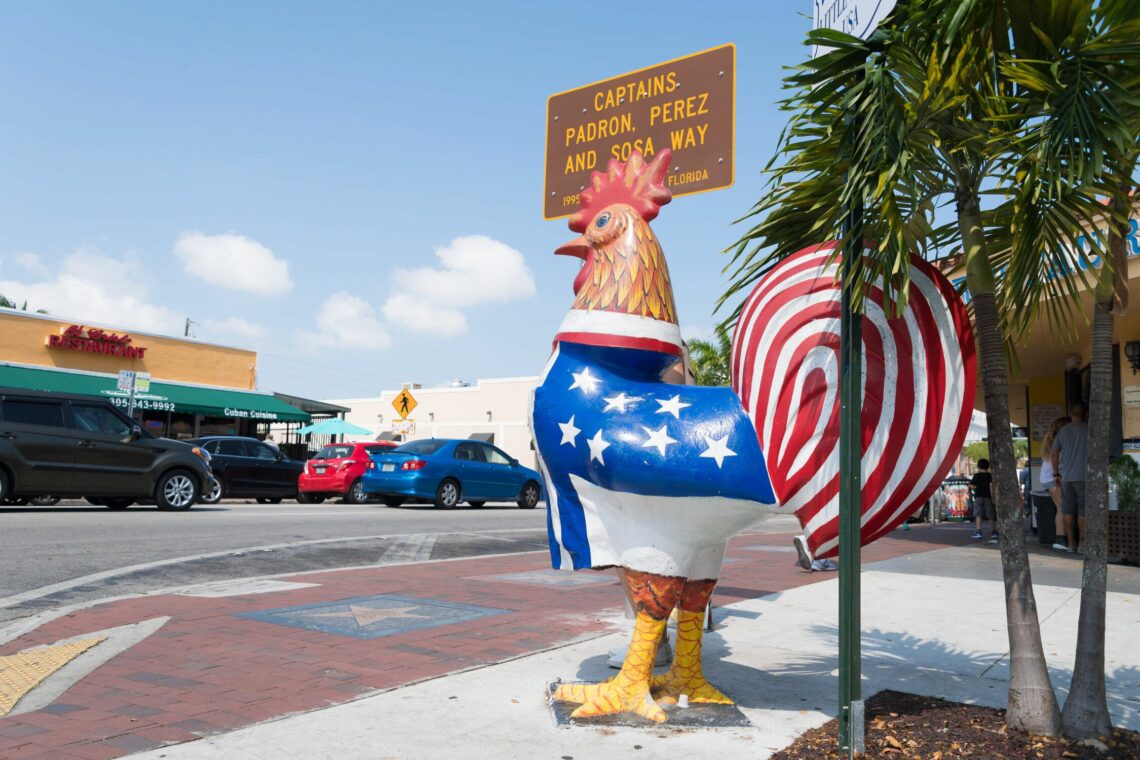The Biden administration reverts to Obama policy
While the Biden administration was reviewing U.S. policy toward Cuba, anti-regime protests erupted across the island. The response suggests that the Biden team will gradually bring back Obama policies aiming to normalize relations with Cuba.

In a nutshell
- President Biden was slow to react to protests in Cuba
- His administration only mildly criticized the regime
- A return to Obama-era normalization policies is likely
The administration of United States President Joe Biden was reviewing policies toward the government of Cuba when demonstrations against the regime erupted across the islands. While that effort seems on pause for the moment, there appears to be little question that the Biden team intends to revert to the policies in place under President Barack Obama.
Dramatic policy shifts
U.S. policies toward the Cuban regime had been a long-standing constant of American foreign policy until recent years. In the mid-1960s, the U.S. abandoned seeking regime change against the communist government and focused on a broad array of sanctions against the regime.
Cuba was also listed by the U.S. as a State Sponsor of Terrorism. In addition, administrations worked to mitigate Cuban support for revolutionary regimes in Africa and South America. In 1985, Washington initiated active propaganda efforts through Radio and later Television Marti, though with scant effect. The U.S. also maintained an ambiguous “wet-foot, dry-foot” refugee policy that allowed Cubans who reached American territory to pursue residency.
President Obama began an unprecedented transformation in Cuban policy.
After the Cold War, Canada and European nations expanded engagement with Cuba, though the U.S. stance remained relatively unchanged. Policies enjoyed broad bipartisan support in Congress and from both Democratic and Republican presidencies.
In 2015, the Obama administration began an unprecedented transformation in Cuban policy. Arguing that years of sanction and isolation had done nothing to change the regime or improve bilateral relations, the president concluded that a process of normalization would serve better to encourage political and economic reforms. In 2009, he eased the travel ban. In 2015, the U.S. removed Cuba from the list of State Sponsors of Terrorism. In 2017, he abolished the “wet-foot, dry-foot” policy. He also lifted sanctions.
There were virtually no signs of economic or political liberalization after these initiatives. President Trump, in turn, reimposed travel restrictions and sanctions. The most significant measure implemented during Mr. Trump’s tenure was to block Western Union activities in Cuba, virtually the only means for transmitting remittances from the U.S. The administration did not block food and medical aid, as is sometimes asserted.
Protests disrupt policy review
After Mr. Biden assumed office in January 2021, Cuba was prioritized among the many policies of the Trump administration that the new president ordered to be reviewed. While the matter was under consideration, intense demonstrations against the Cuban government erupted throughout the island. Almost immediately, Havana enacted measures to repress the protests and organized pro-government counterdemonstrations. In the U.S., pro-democracy rallies took place in support of the demonstrators.
Conservative politicians strongly supported the pro-democracy demonstrations. Several prominent liberal voices answered that the U.S. had no reason to meddle in Cuban affairs and that the protests were the result of the impact of Covid-19 on the economy and healthcare system, as well as sanctions imposed by former President Trump.
The Biden team responds
Initially, the Biden administration was slow to respond to the crisis, blaming the lack of vaccines for the protests. Over the following days, the Biden team developed a calibrated response consisting of mildly criticizing the regime while making no major move in support of the protests.
President Biden, for example, explicitly voiced disapproval of the communist government. On the other hand, the U.S. sanctioned only a handful of individuals over the human rights abuses committed against the demonstrators. Furthermore, these measures were largely meaningless because the Trump administration had already implemented much broader sanctions against a wider group of Cuban government officials. The administration was also slow to act on calls to play a proactive role in restoring internet access to the Cuban people, which was cut off by the regime when protests erupted.

© Getty Images
Behind the scenes
The Biden administration’s modest rebuke of the Cuban government was meant to address multiple audiences. On one hand, the Cuban American community still harbors great antipathy toward the regime, particularly in Florida. Since Florida is a critical state in U.S. presidential politics (one that President Biden lost in the 2020 elections), the administration is concerned about alienating voters, particularly as recent polls show the Democratic Party is losing support among Hispanic voters, a once very reliable voting bloc. On the other hand, there are powerful Democratic voices that remain keen on normalizing relations with Cuba and eliminating the sanctions imposed by President Trump.
The Biden administration has made no effort to develop a bipartisan policy.
What is abundantly clear is that the Biden administration prefers to support the stability of the Cuban regime. Even as it issues criticism, the signal to Havana is that the U.S. will do nothing to significantly pressure the regime. Indeed, the administration is quietly working to open channels with consular affairs working groups. The hope is that by “releasing the steam valve,” anti-regime agitation will calm down, and protestors will either leave because of persecution or have more money coming in.
The Biden administration has made no effort whatsoever to develop a bipartisan policy. It has been actively and publicly meeting with groups that are pro-regime or heavily favor normalization with Cuba while assiduously avoiding pro-democracy groups and leaders.
Several former Obama officials appear to be actively involved in steering back to the policies of the Obama administration as the current wave of protests recedes. Key figures include presidential advisor Susan Rice, Juan Gonzalez at the National Security Council, and Emily Mendrala, the deputy assistant secretary of state for Cuban and migration affairs, who was a key drafter of Cuban policies under Mr. Obama. Also thought to be engaged is former Deputy National Security Advisor Ben Rhodes, who though not currently in government, continues to press for normalization, believing that it will lead to a peaceful transition to communist “technocrats” who will be able to manage Cuba better economically.
The administration might move to speed the process up, hoping it will not affect the midterm elections.
Following this course, the Biden team aims to avoid an escalating crisis and mitigate criticism from the Cuban-American community.
The U.S. approach is reinforced by the lack of significant uproar against the Cuban regime from within Latin America. Mexican President Andres Manuel Lopez Obrador, for example, praised the regime and called for an end to U.S. sanctions. The Permanent Council of the Organization of American States was supposed to have a Cuba hearing. That initiative was killed.
President Biden will fully reinstate the Obama policy of normalizing relations with Cuba. The only question is when. The administration might move to speed the process up, hoping it will not affect the midterm elections. It could also take place after, although this is less likely. There is insufficient bipartisan support in Congress to oppose the president in this matter.







